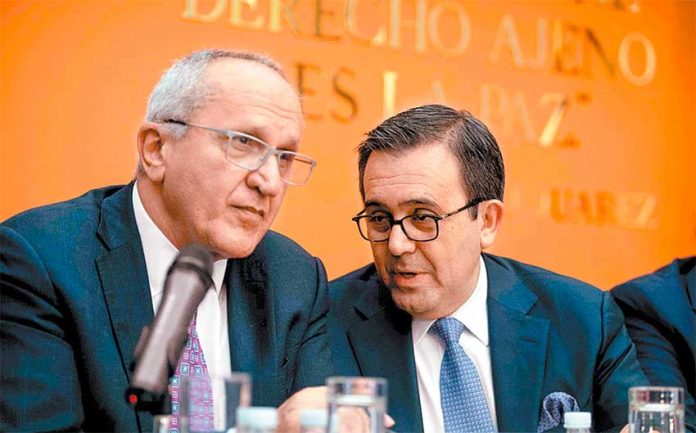If Canada doesn’t agree to parts of the trade pact between Mexico and the United States, they will be renegotiated, Economy Secretary Ildefonso Guajardo said yesterday.
In a radio interview, Guajardo specifically cited rules of origin for the automotive sector as an issue that could require adjustment but stressed that new talks with Canada would not be a “pitched battle” but rather a more agile process than the one recently concluded between Mexico and the United States.
U.S. President Donald Trump announced Monday that the two countries had reached a new trade agreement that could exclude Canada but Mexico has stressed its wish that the pact remain trilateral and talks aimed at reaching that end are taking place in Washington D.C. this week.
Guajardo said he was confident that Canada would come on board, adding that Mexico’s negotiating team had maintained constant communication with Canadian officials as it negotiated separately with the United States over the past month.
In a separate interview yesterday, the economy secretary told Bloomberg Television that “Canada has to analyze the landing zones that we will propose in some of the issues . . . and they have to decide how they want to solve them.”
Some of the issues are specific to the United States-Canada relationship, Guajardo said, such as supply management in dairy and poultry and government procurement.
In addition to auto trade rules, trilateral issues including the six-year “review” agreement in lieu of the sunset clause, which the United States was pushing for, and Chapter 19 dispute resolution mechanisms will also be subject to revision, he said.
Mexico and Canada both opposed the inclusion of a sunset clause that would have seen an updated trade pact automatically expire if it was not renegotiated every five years but Canada is likely to disagree with the elimination of a settlement system for anti-dumping disputes, which Mexico already agreed to, because it considers it a means to fight what is sees as unfair U.S. duties on softwood lumber and paper.
Foreign Affairs Secretary Luis Videgaray said in another interview that the six-year review arrangement was proposed by Jesús Seade, president-elect Andrés Manuel López Obrador’s nominee to be his chief trade representative.
Elimination of the sunset clause would avoid a “sudden death” of the agreement, Videgaray said.
Canadian Foreign Minister Chrystia Freeland today expressed support for the updated auto trade rules, which stipulate that 75% of content must be made in the North American region in order for a car to qualify for tariff-free status and that 40% to 45% of content must be made in high wage zones where workers earn at least US $16 per hour.
“Rules of origin in cars is an incredibly complicated issue, but we had reached a high-level agreement with the U.S. in the spring, and we are encouraged by the progress they made with Mexico this summer,” she told reporters.
“Mexico has made some significant concessions which would be really good for Canadian workers,” Freeland added.
Mexican and United States negotiators are pushing to reach a deal by the end of this week so that the U.S. Congress can pass a new agreement before President Enrique Peña Nieto leaves office at the end of November.
If Canada is not brought into the agreement, United States Trade Representative Robert Lighthizer has indicated that Trump will notify U.S. Congress of the separate deal with Mexico.
While stressing that a trilateral deal is the aim, Guajardo said he believed that a separate bilateral deal could pass the U.S. Congress, adding that the Trump administration had told Mexico’s negotiating team as much.
However, some lawmakers, including Republicans, have said they won’t support a deal that excludes Canada, while some trade experts are questioning whether the U.S. president has the legal authority to leave Canada out.
“The Congress gave trade promotion authority to the USTR [United States Trade Representative] . . . based on a trilateral deal so there are some, including many in Congress who are saying, ‘We’re not going to review a bilateral submission, you don’t have authority for that.’ So they could kick it back to the curb,” said Laura Dawson, director of the Canada Institute at the Wilson Center in Washington.
Other analysts believe that a Friday deadline to include Canada in the deal is too ambitious.
“The reality is you can’t do in three and a half days . . . what the Mexicans did in five weeks of very intense, non-stop negotiations,” said Eric Miller, a trade expert and president of Washington consulting firm Rideau Potomac Strategy Group.
“So this notion that somehow there has to be a deal by Friday is just wrong, I think.”
Source: Milenio (sp), La Jornada (sp), Bloomberg (en), Global News (en)
